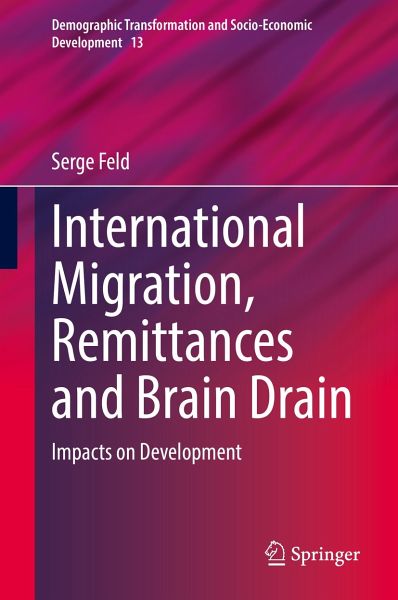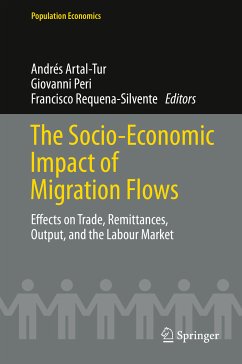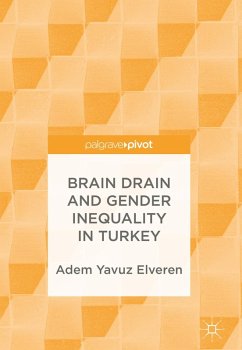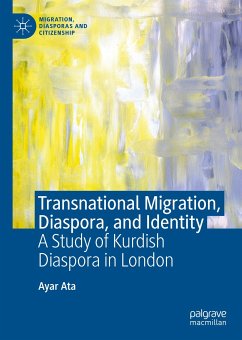
International Migration, Remittances and Brain Drain (eBook, PDF)
Impacts on Development
Versandkostenfrei!
Sofort per Download lieferbar
96,95 €
inkl. MwSt.
Weitere Ausgaben:

PAYBACK Punkte
48 °P sammeln!
This book provides an analysis of theoretical and empirical researches on the effects of remittances and brain drain on the development of less developed countries (LDCs). It analyzes the most recent global, regional and national data as well as the arguments for and against the emigration of highly skilled personnel and remittances, thereby highlighting policies aimed at optimizing the link between migration and development. The book examines in depth the arguments against "brain drain", namely the loss of skilled labor, wasted public investment in higher education, and reduced tax revenues. ...
This book provides an analysis of theoretical and empirical researches on the effects of remittances and brain drain on the development of less developed countries (LDCs). It analyzes the most recent global, regional and national data as well as the arguments for and against the emigration of highly skilled personnel and remittances, thereby highlighting policies aimed at optimizing the link between migration and development. The book examines in depth the arguments against "brain drain", namely the loss of skilled labor, wasted public investment in higher education, and reduced tax revenues. It also presents the arguments in favor, emphasizing on the transfer of scientific knowledge, the incentive effect of increased education spending, and participation in international networks. It addresses the central issue of emigration of medical personnel from developing countries and its consequences on the population.
The book focuses on the effects of remittances on poverty and inequalities. They improve health conditions, raise education levels and empower women. Positive effects include the stabilizing function of remittances and the improvement of external accounts. Other effects are subject to conflicting assessments such as the reduction of labor supply and the "Dutch disease". The focus is on institutions who integrate economic, social and political incentives in order to establish remittances at the heart of development policies.
The book provides a reference for students and research centers devoted to development economics, centers for international migration studies, and research units focusing on population, migration, and development.
Dieser Download kann aus rechtlichen Gründen nur mit Rechnungsadresse in A, B, BG, CY, CZ, D, DK, EW, E, FIN, F, GR, HR, H, IRL, I, LT, L, LR, M, NL, PL, P, R, S, SLO, SK ausgeliefert werden.












